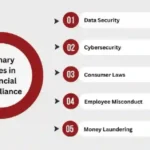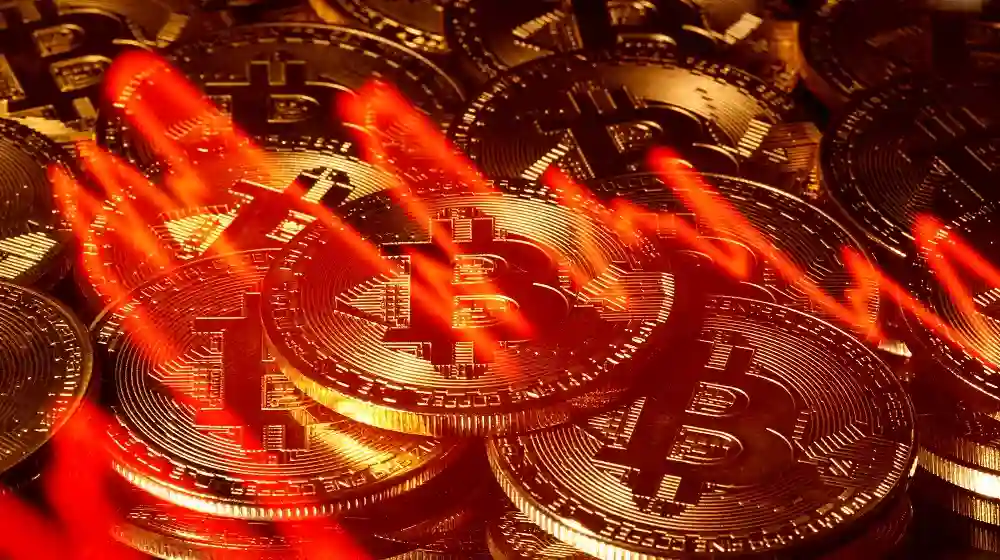Alright, let’s get this out of the way: cryptocurrency is like the wild west of finance. It’s new, it’s unregulated, and it’s a whole lotta “what the heck is going on?” but in the best possible way. And as much as it has changed how we think about money, governments are now, quite understandably, all up in it with rules. Understanding about crypto regulation is crucial—especially if you’re investing or trying to make sense of it all. So, grab your favorite coffee (or tea, if you’re trying to be fancy) and let’s dive in.
What Exactly is Crypto Regulation?
So, here’s the deal: crypto regulation is basically the rules that governments and financial authorities create to control how cryptocurrencies are used, traded, and taxed. It’s about creating a framework to protect you, me, and that one friend who still thinks Bitcoin is some kind of fantasy game currency.
And, let’s face it, about crypto—without any regulation, we’d all probably be knee-deep in scams and shady deals.
Why is Crypto Regulation Important?
Well, imagine this: You’re scrolling through Twitter, and boom—there’s a huge scandal about a crypto project you just invested in. Yikes. Now, what if there were some regulations in place that kept that from happening? Here’s why we need those regulations about crypto:
- Fighting Fraud: Cryptos get a bad rap because, let’s be real, they’ve been involved in shady scams. Regulation helps keep that in check, or at least attempts to.
- Protecting Investors: You don’t want to lose your money on some get-rich-quick scheme, right? Proper regulation about crypto helps reduce the risks.
- Market Fairness: If everyone followed the same rules, the market would be less like a chaotic free-for-all and more like an actual market.
- Making Taxes Work: Yeah, I said it. Taxes. The government wants their cut, and understanding about crypto taxation makes sure you don’t end up on the wrong side of the law.
- Encouraging Big Investors: Believe it or not, big institutions are sitting on the sidelines, waiting for crypto regulations to become clearer. They won’t touch it until it’s safer.
The Nitty-Gritty of Crypto Regulation
Now, if you’re thinking, “Okay, regulation is important, but what does that even look like?” Well, here’s a rundown of what you should expect about crypto regulation:
1. Crypto Licensing and Registration
Okay, so this is the part where exchanges (the places where you trade crypto) have to get legit. They need licenses and must meet Anti-Money Laundering (AML) and Know Your Customer (KYC) rules. Sounds boring, but it keeps the system from being a complete disaster. I mean, who wants to be scammed out of their savings, right?
- Exchanges Need a License: If you want to trade, those platforms have to follow the rules set by the authorities. No shady stuff.
- KYC and AML: If you’re wondering if they’re gonna ask for your ID and maybe a bank statement—yep, they will. It’s about crypto, after all. They’re just trying to make sure you’re not laundering money (unless you’re a legit business, in which case, hi there!).
2. Crypto Taxation: Get Ready for It
You didn’t think you’d get away with making big bucks on crypto without the government taking their share, did you? Nope. Not happening. The taxman’s here, and he’s not going anywhere. If you’re sitting there thinking, “I’ll just ignore this—who’s gonna find out?”, well, spoiler alert: The IRS has eyes everywhere.
- Capital Gains Tax: Every time you trade or sell crypto, it’s like you’re selling a stock. Which means you owe the government taxes about crypto gains.
- Mining and Staking Rewards: Got rewards from mining or staking? Yeah, those count too. So, you better believe you’re paying taxes about crypto.
- Non-Compliance: Don’t ignore it. You’ll end up on their radar, and trust me, you don’t want that.
3. Stablecoin Regulation
If you’re into stablecoins (those cryptos that aren’t as volatile as Bitcoin, like USDT or USDC), brace yourself. There’s a whole bunch of regulatory drama happening here. But, really, it’s necessary. Stablecoins have to be backed by real money—otherwise, things could get sketchy about crypto.
- Reserve Requirements: Stablecoins need to have enough reserves to back their value. If they don’t, people are gonna start asking questions.
- Regulation on Issuers: The government wants to ensure stablecoin issuers are legit. They’re gonna make them hold banking licenses to back up their coins.
- Algorithmic Stablecoins: Yeah, the government’s not thrilled about these. Why? They can crash and burn faster than my first sourdough starter did (RIP, Gary).
4. Crypto as a Security
Here’s the kicker: Some cryptocurrencies are being treated as securities. It’s like a game of who’s a stock and who’s not?
- ICOs: If you’re launching a new coin, better be ready to follow securities regulations. This isn’t some Wild West of crypto about crypto.
- Profit-Sharing Tokens: If your token gives people a stake in profits (like a share in a company), it’s gonna fall under security laws. Hope you’ve got your paperwork ready!
- Non-Compliance: If you’re caught in violation, well… you’re gonna need a lawyer. Fast.
The Global Scene: How Different Countries Handle Crypto Regulation
About crypto, different countries are playing by different rules. Here’s how some of the big players are approaching it.
1. United States
Alright, America, let’s talk about crypto. The U.S. has a mixed approach to regulations. It’s not all sunshine and rainbows, but they’re getting there.
- SEC & CFTC: These agencies have different rules for crypto—basically, the SEC is all about treating some cryptos as securities, while the CFTC focuses on futures and derivatives.
- Tax Laws: Yeah, taxes are a thing. You can’t avoid them when it comes to crypto. As I learned the hard way, don’t mess with Uncle Sam.
2. European Union
The EU’s not messing around. They’ve got the Markets in Crypto-Assets (MiCA) framework, which aims to create a common ground for about crypto regulation. They’re taking this seriously.
- AML and KYC: The EU is strict about keeping crypto free from fraud, so exchanges have to jump through hoops.
- Stablecoin Regulations: Same as the U.S., they want full backing of reserves and transparency about crypto.
3. China
China, man. They’ve been the tough teacher when it comes to crypto. The country has banned crypto trading and mining outright. But, they’re also working on their own Central Bank Digital Currency (CBDC), so there’s that.
- Ban on Crypto: If you’re trying to trade crypto in China? Yeah, that’s a hard no. They’ve completely shut that down.
- Digital Yuan: The Chinese government is pushing its own CBDC to replace the need for decentralized crypto about crypto.
The Future of Crypto Regulation
Fast forward past three failed attempts to regulate about crypto—and we’re getting somewhere. Here’s where things are heading.
1. Stricter Regulations
As things progress, expect more rules to pop up. More transparency, more oversight, and hopefully, fewer scams.
2. CBDCs Everywhere
I know, I know—centralized digital currencies might sound like the opposite of everything crypto stands for. But they’re coming. Get ready for government-backed digital currencies that might challenge the decentralized nature about crypto.
3. Bigger Institutional Involvement
You’ll see more big players getting into crypto, but they’ll want the playing field to be regulated. So, yeah, regulations about crypto are going to be crucial for them to feel comfortable joining in.
Final Thoughts
The world of about crypto regulation can feel like a rollercoaster—up, down, and with some wild turns. But it’s important to know what’s going on. Whether you’re trading, investing, or just watching from the sidelines, understanding the rules makes sure you don’t get stuck holding the bag. So, buckle up. It’s gonna be a bumpy but thrilling ride.










Important Posts
The Importance of Risk Management in Forex Trading
Cryptocurrency & Forex Essentials: A Beginner’s Guide
Forex & Crypto News: Market Trends & Investment Tips